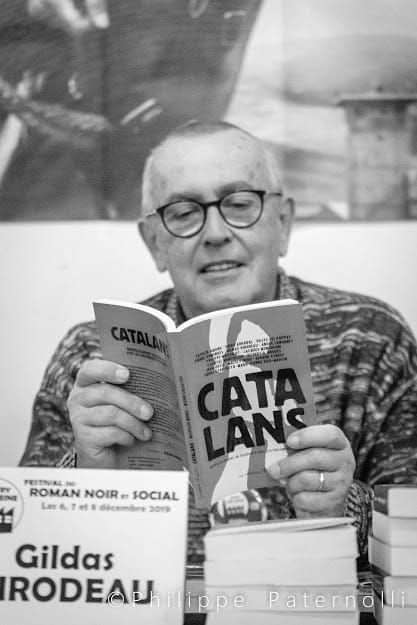Girodeau’s Catalonia: Sunny place for shady people
by Ellen Hall
It is quite natural that Gildas Girodeau’s detective novels are set in his native Catalonia. Born in Collioure, Girodeau started writing as a student at the Lycée Arago in Perpignan. Today he and his wife live and work in the midst of an olive grove nestled in the hills just above the coastal path between Argelès and Collioure.

What is less natural is that this big man with an open, innocent face projects such a dark vision of human nature in his stories. The editor who published Girodeau’s first prize-winning story suggested that he should write detective fiction. His first four books published by Cap Béar Editions are all in this genre.
Rejecting the idea of detective fiction as merely escapist literature, Girodeau says that social problems have become the central concern of “noir” crime novels, thanks to the innovations of Jean-Patrick Manchette in France and Dashiell Hammett in the US. In their view, the corrupting influence of society creates the criminal and, therefore, anyone can become a criminal. Thus writing a crime novel becomes a social act aimed at denouncing the system. Its appeal is democratic and anti-establishment at the same time.
Girodeau’s detective fiction is a kind of double helix: set against the background of a social evil – drugs, nuclear contamination, human trafficking – the intrigue revolves around the lives of the characters. This year he has launched himself in a new direction which he calls heroic fantasy, published in the US by Black Coat Press. Set in “Katland” in the year 1213, the book portrays demons and dragons with a Catalan accent.

